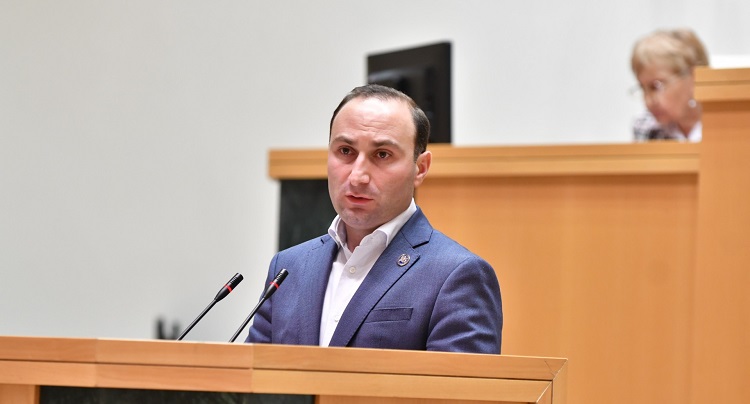Parliament Committee Chair: transparency bill discussions should not be “taboo” subject

Anri Okhanashvili, the Chair of the Parliament's Legal Affairs Committee, on Wednesday said the topic of the controversial bill on transparency of foreign influence should be open for discussion. Photo: Parliament of Georgia
Anri Okhanashvili, the Chair of the Parliament's Legal Affairs Committee, on Wednesday said the topic of the controversial bill on transparency of foreign influence should be open for discussion.
In comments about the bill proposed by People's Power, a public movement composed of former members of the ruling Georgian Dream party, and involving registration of non-commercial legal entities and media outlets as “agents of foreign influence” if they derive more than 20 percent of their income from abroad, Okhanashvili said “imposing a taboo” on discussions was “not acceptable for democracy”.
“In the name of democracy, some people are suggesting that we impose a taboo on a certain issue, as if even discussing the issue is undemocratic [and] incompatible with democratic principles”, the Parliament official said.
As for the content [of the bill], we will have the opportunity to listen to everyone during the Parliamentary discussion. I don't think anyone would feel uncomfortable with this principle that the process should be transparent”, he added.
“We will wait for the conclusion [on the bill] of the Venice Commission [of the Council of Europe], which has already discussed circumstances of different countries and has opinions. Every country has its own specifics, and when we have a conclusion, we will discuss it openly”, Okhanashvili also said.
Mamuka Mdinaradze, the Executive Secretary of the ruling Georgian Dream party, on Monday said there “could be no arguments from anyone” against the approval of the bill.
The legislative piece has been criticised by the domestic opposition, civil sector and diplomatic representations in the country, with the former calling it “incompatible with the basic principles of a modern democratic state”.
The United Nations Office in Georgia on Sunday said adoption of the bill would “risk impeding the work of civil society and media and the essential contributions they make to Georgian democracy”.
 Tweet
Tweet  Share
Share